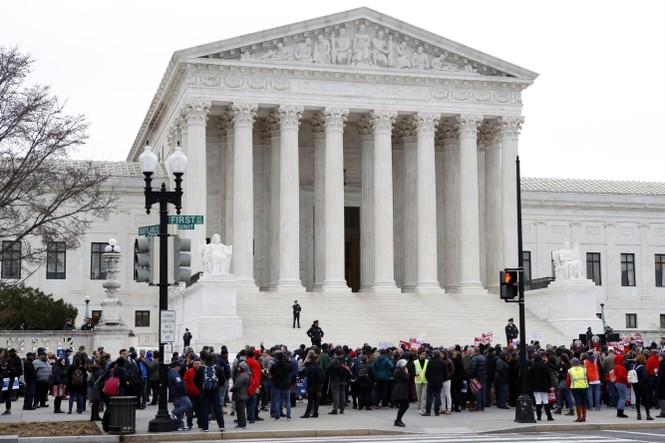With the media's focus solely on the Marjory Stoneman Douglas High School shooting that took place on Valentine's Day, one major gun case has gone rather unnoticed.
On Tuesday, February 20th, the Supreme Court of the United States turned down a challenge to California's 10-day waiting period for firearm purchases. The law is said to prevent people from committing heinous acts and suicides.

About the Case
The lawsuit was brought forth by gun owner Jeff Silvester and the Calguns Foundation. They argue that the 10-day waiting period is too long and unnecessary for gun owners who already own a firearm. They believe a "cooling off period" won't keep a criminal from committing a crime if he or she already possesses a gun.
Currently, the District of Columbia and nine states impose a waiting period. Those states include California (with the longest waiting period), Florida, Hawaii, Illinois, Iowa, Maryland, Minnesota, New Jersey and Rhode Island.

A Look at the Court's Take on the Second Amendment
The Supreme Court struck down laws that infringed upon the Second Amendment in 2008 and 2010.
The 2008 case, District of Columbia v. Heller, is a landmark case in which a 5-4 decision found that the Second Amendment protects an individual's right to have a firearm to defend themselves in their home.
The 2010 case, McDonald v. City of Chicago, is a landmark case in which a 5-4 decision found that people have a right to keep and "bear arms," which is protected under the Second Amendment. It cleared up any confusion that may have stemmed from the Heller case.
Recommended
Since then, the justices have repeatedly turned down gun rights advocates who have challenged gun control laws.
"While the court has ruled that the 2nd Amendment protects the right of law-abiding citizens to own guns, the justices have repeatedly refused to go further by blocking strict gun regulations, including state bans on the sale of semi-automatic weapons or limits on who can carry a weapon in public," the Los Angeles Times reported.
According to Justice Clarence Thomas, the only dissenting opinion to denying the challenge to California's 10-day waiting period, "the Second Amendment is a disfavored right in this court."
“If a lower court treated another right so cavalierly, I have little doubt this court would intervene,” Thomas wrote, according to Reuters. “But as evidenced by our continued inaction in this area, the Second Amendment is a disfavored right in this court.”
UCLA law professor Adam Winkler told the Los Angeles Times he believes the court fails to have at least four justices who are ready to have a dog in the gun control fight.
"The California case highlights that the gun debate will play out in the legislatures and in Congress," Winkler said.

What Gun Control Advocates And Gun Activists Are Saying
Calguns Foundation mentioned their disappointment in a press release but pointed to Justice Clarence Thomas' dissenting opinion as proof that the 9th Circuit Court of Appeals has double standards for how they judge cases.
From their release:
We agree with Justice Thomas that the Ninth Circuit’s “double standard is apparent from other cases,” like one where it invalidated an Arizona law partly because it “delayed” women seeking an abortion, and another where it struck down a Washington county’s 5-day waiting period for adult dancing licenses because it “unreasonably prevent[ed] a dancer from exercising first amendment rights while an application [was] pending.”
As Justice Thomas explained, the “Ninth Circuit would not have done this for any other constitutional right, and it could not have done this unless it was applying rational-basis review.” He is, of course, correct—just as we have maintained throughout the course of this appeal and in our briefing to the Supreme Court. But in the Ninth Circuit, it appears, “rights that have no basis in the Constitution receive greater protection than the Second Amendment, which is enumerated in the text.”
Everytown for Gun Safety, one of the leading gun control groups in the nation, is considering the decision a small victory.
"Once again the Supreme Court has refused to entertain the gun lobby’s extreme interpretation of the Second Amendment,” Eric Tirschwell, litigation director for Everytown for Gun Safety, told Reuters. “The courts are continuing to recognize that states have the authority to pass reasonable public safety laws to protect their citizens from gun violence."
Alian Gottlieb, founder of the Second Amendment Foundation, was disappointed with the Supreme Court's decision.
“The court should take these cases and give lower courts guidance because at the moment lower courts are all over the map on gun rights issues,” Gottlieb told Reuters.
























Join the conversation as a VIP Member